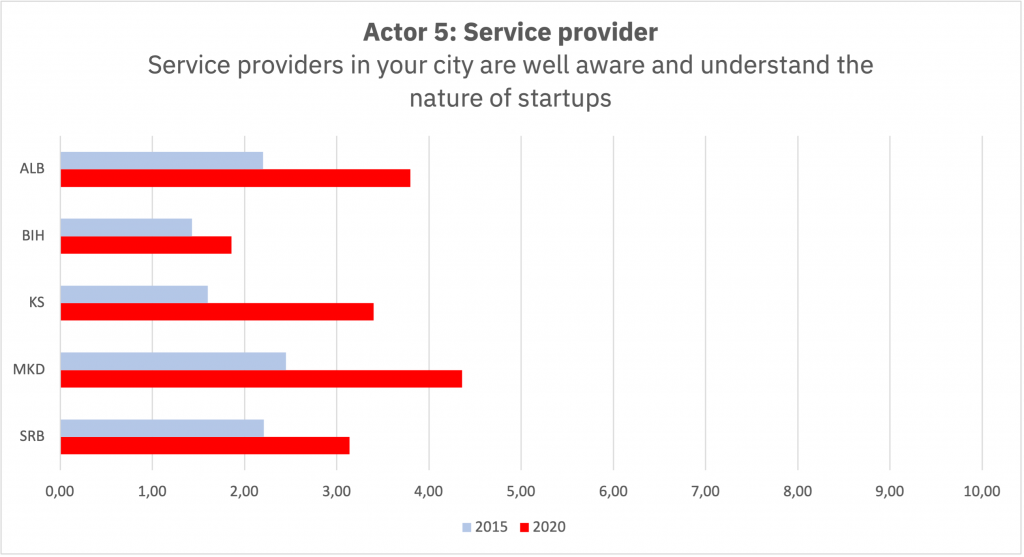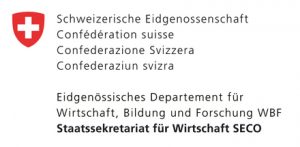Within the context of the startup ecosystem, service providers refer to, according to Brad Feld, “…lawyers, accountants, investment bankers, technical experts, computing services and real estate lessors and co-working facilities.” Feld goes on to state that in “…healthy startup communities, service providers have an acute understanding of the unique nature of startups”.
On the topic of service providers, we asked our interviewees how accurate they found the following statement “Service providers in your city are well aware and understand the nature of startups”.
On this topic, the interviewees held similar opinions in all five countries. In general, the level of awareness and understanding of startups among service providers is low, with no country reaching above 5 on a scale from 0 to 10 where 10 indicates a high level of awareness and understanding.
The trend has been very positive in the region over the last five years, albeit from a very low level. In 2015, the average score was 1.98 (on a scale from 0 to 10), meaning there was minimal awareness and understanding about startups among service providers. In 2020, the score was 3.32, which represents an improvement of 68%. The change is positive in all five countries – Albania (+72%), Bosnia & Herzegovina (+36%), North Macedonia (+76%), Serbia (+60%) and Kosovo (+112%).

Probably the main reason for the improving levels of perceived awareness and understanding among service providers is the fact that startups and entrepreneurial ecosystems have been receiving much more attention in recent years by governments, media and international donor agencies. Governments are becoming increasingly aware of the political, economic and social benefits of a healthy startup ecosystem capable of producing globally competitive entrepreneurs, who in turn generate employment and tax revenues. Among international donor agencies, support to startups and innovative entrepreneurs is becoming increasingly popular in the region, as a new type of beneficiary with the latest development tools that contribute directly to their development strategies.
The ecosystems in the Western Balkans are relatively young. That is probably one reason why the awareness and understanding for startups among service providers are lagging, and the access to service providers is limited. As one respondent replied, “There is improvement in this area, but much more has to be done. Service providers need education on what a startup is”.
Raising awareness among service providers about startups falls on ecosystem actors who provide services and funding to startups, such as accelerators and incubators. For a mature company, ensuring that the business has a solid legal and financial foundation comes first. But engaging lawyers and accountants are, of course, associated with costs in the form of service fees.
Too often, startups in the Balkans look only at the costs of service providers and postpone engaging with them for a later stage. This can be very costly in the medium run. Accelerators and other ecosystem actors can play a key role here in managing expectations of both startups and service providers. Service providers must understand that startups are not SMEs, and to work with startups may need a different price list for their usual services.
Furthermore, startup program managers will do well to involve service providers more in their programming, introducing legal (lawyers) and financial management (accountants) topics to startups already in the idea-stage, rather than to push these fundamental business decisions to a time when the teams are already established, product ready and sales are being generated.




